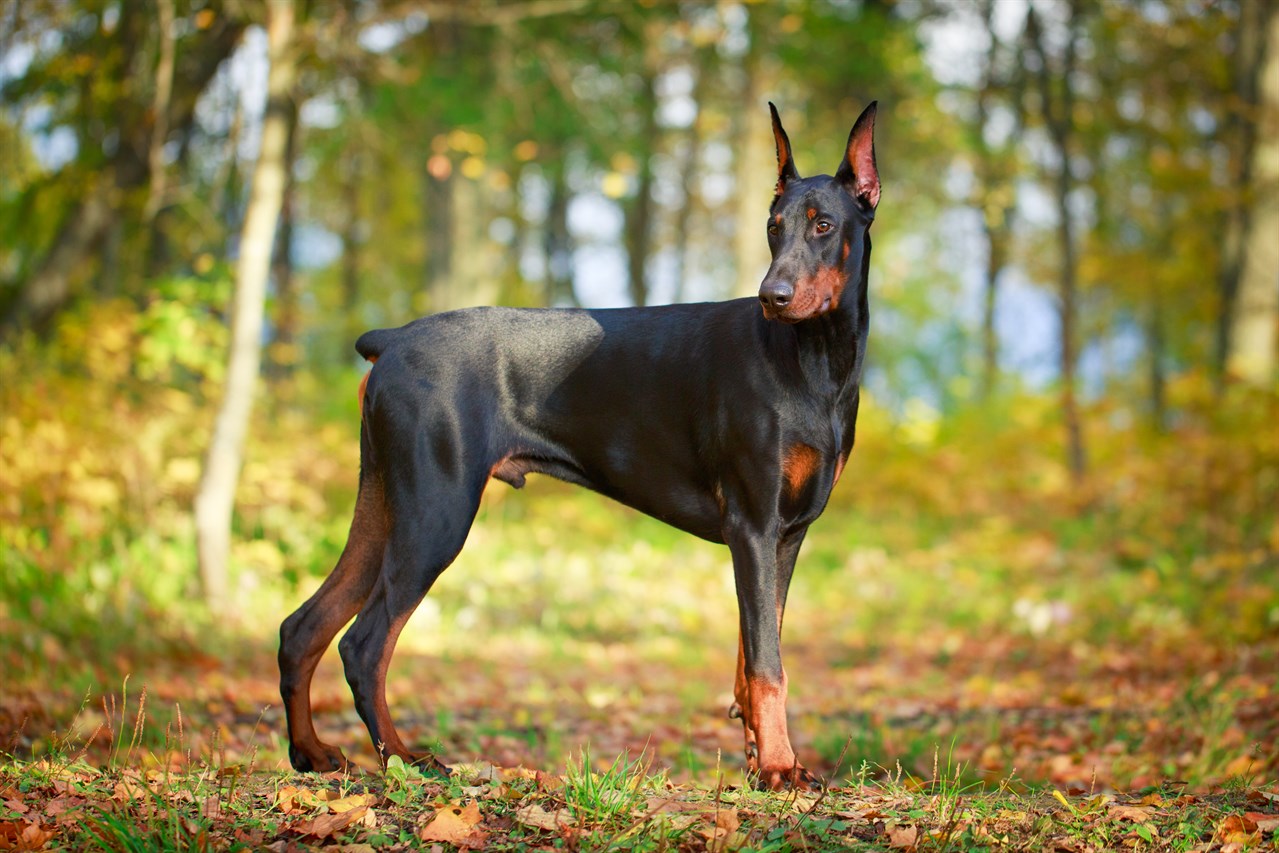Feeding Habits and Food Requirements of Dobermanns: Balanced Nutrition for an Active Breed

Feeding your Dobermann a well-balanced diet is essential to support their active lifestyle, maintain their overall health, and keep them in peak condition. Understanding their feeding habits and dietary needs is crucial for responsible ownership.
Feeding Schedule
Establish a consistent feeding schedule for your Dobermann. Most adult Dobermanns do well with two meals a day, one in the morning and one in the evening. Puppies may require more frequent feeding, often three to four meals a day, to accommodate their growth and energy needs.
Portion Control
Avoid overfeeding or free-feeding, as Dobermanns are prone to obesity if given excessfood. Measure their portions carefully and follow the guidelines provided on the dog food label. Adjust the portion size based on their activity level, age, and individual metabolism.
High-Quality Dog Food
Choose high-quality commercial dog food that meets the nutritional requirements of your Dobermann. Look for options that list meat as the primary ingredient and are free from excessive fillers and additives. Consult with your veterinarian to select the most suitable food for your dog's specific needs.
Protein
Dobermanns benefit from a diet that is moderately high in protein. Protein is essential for muscle maintenance and overall vitality. Look for a dog food that contains at least 20-30% protein.
Fat
Ensure that the dog food includes an appropriate amount of healthy fats, as these provide a concentrated source of energy for your active Dobermann. Aim for a food that contains around 10-20% fat.
Avoid Fillers
Minimise the consumption of foods containing excessive fillers like corn, wheat, and soy, which offer limited nutritional value and can lead to allergies or digestive issues in some dogs.
Water
Always provide access to fresh, clean water. Dobermanns are an active breed, and proper hydration is essential to support their activity levels.
Special Dietary Considerations
Some Dobermanns may have specific dietary requirements or allergies. If your Dobermann has dietary sensitivities or allergies, work closely with your veterinarian to identify suitable foods and potential allergens to avoid.
Weight Management
Regularly monitor your Dobermann's weight to ensure they maintain a healthy body condition. If you notice weight gain or loss, adjust their food portions accordingly. Obesity can lead to various health issues and should be avoided.
Treats and Supplements
Limit the number of treats and snacks given to your Dobermann to prevent excessive calorie intake. If you wish to supplement their diet with vitamins or minerals, consult with your veterinarian to determine if it's necessary and which supplements are appropriate.
Consult a Veterinarian
Your veterinarian is an invaluable resource when it comes to your Dobermann's diet. They can provide guidance on portion sizes, specific dietary needs, and any health concerns related to nutrition.
In summary, providing a well-balanced diet tailored to your Dobermann's age, activity level, and individual needs is essential for their overall health and well-being. Regularly monitor their weight and adjust their food portions as necessary to maintain an optimal body condition. Consulting with your veterinarian can help you make informed decisions about your Dobermann's dietary requirements.
Dobermann puppies for sale
- Find Dobermann puppies for sale in ACT
- Find Dobermann puppies for sale in NSW
- Find Dobermann puppies for sale in NT
- Find Dobermann puppies for sale in QLD
- Find Dobermann puppies for sale in SA
- Find Dobermann puppies for sale in TAS
- Find Dobermann puppies for sale in VIC
- Find Dobermann puppies for sale in WA